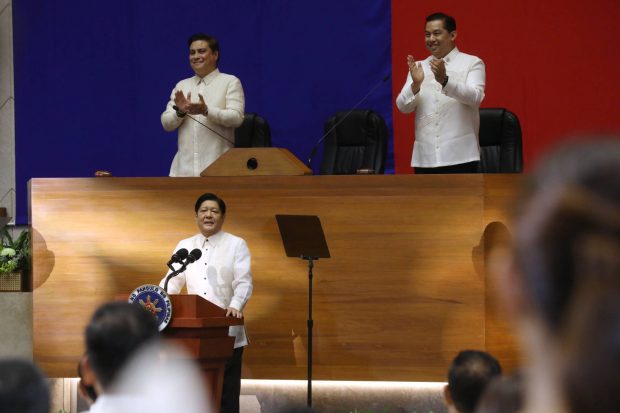Marcos stresses Philippines’ commitment to addressing climate change effects

President Ferdinand R. Marcos Jr. delivers his second State of the Nation Address (PNA)
MANILA: Philippine President Ferdinand Marcos Jr. has used his annual State of the Union speech to emphasize his administration’s commitment to climate change as an important criterion in the country’s integral national policies, planning, and decision-making.
“The building blocks of progressive, livable and sustainable communities will never be complete without appropriate and responsible action to mitigate and to adapt to the effects of climate change,” he said.
“We can never lose sight of our responsibility to the future. The economic agenda cannot and will not ever be incompatible with our climate change agenda.”
The potential advantages of ensuring that climate change is an important criterion in national policies and program implementation extend to jobs and livelihood, with the unlocking of the development of the green and blue economies, he said.
“We have learned many painful lessons from past disasters but we continue to be alert and prepared in our disaster response. It has, in fact, been commented that sometimes we are over-prepared for such natural disasters. Well, to continue that, we are reorganizing our response teams to make them more adaptable, agile and effective in times of calamities and crises, with a clear unity of command,” Marcos said.
“Our evacuation centers are being upgraded to withstand the greater forces of the new normal of extreme weather, as well as other natural and man-made disasters. Furthermore, new evacuation centers are also being built, of which 55 have already been completed.”
He stressed that the Philippines remains committed to global decarbonization goals and the reduction of its carbon footprint, and to preserving and protecting its forests whose value to the environment, the ecology, and the economy is incalculable.
“We have adopted the concept of the ‘circular economy’, using nature as our model. The aim is to keep raw materials in a closed loop. In our world with scarce resources, the circular economy allows us to fully use these resources, minimize waste and reduce the need for new resources—just as it is in nature,” he said.
However, he emphasized that the new system requires the participation of all sectors of society, up to each individual citizen, in order to succeed.
“Only a whole-of-government and whole-of-society approach will enable us to do all of these. It is necessary to apply all the resources that are at hand if we are to progress as quickly as we need to,” he said.

























































